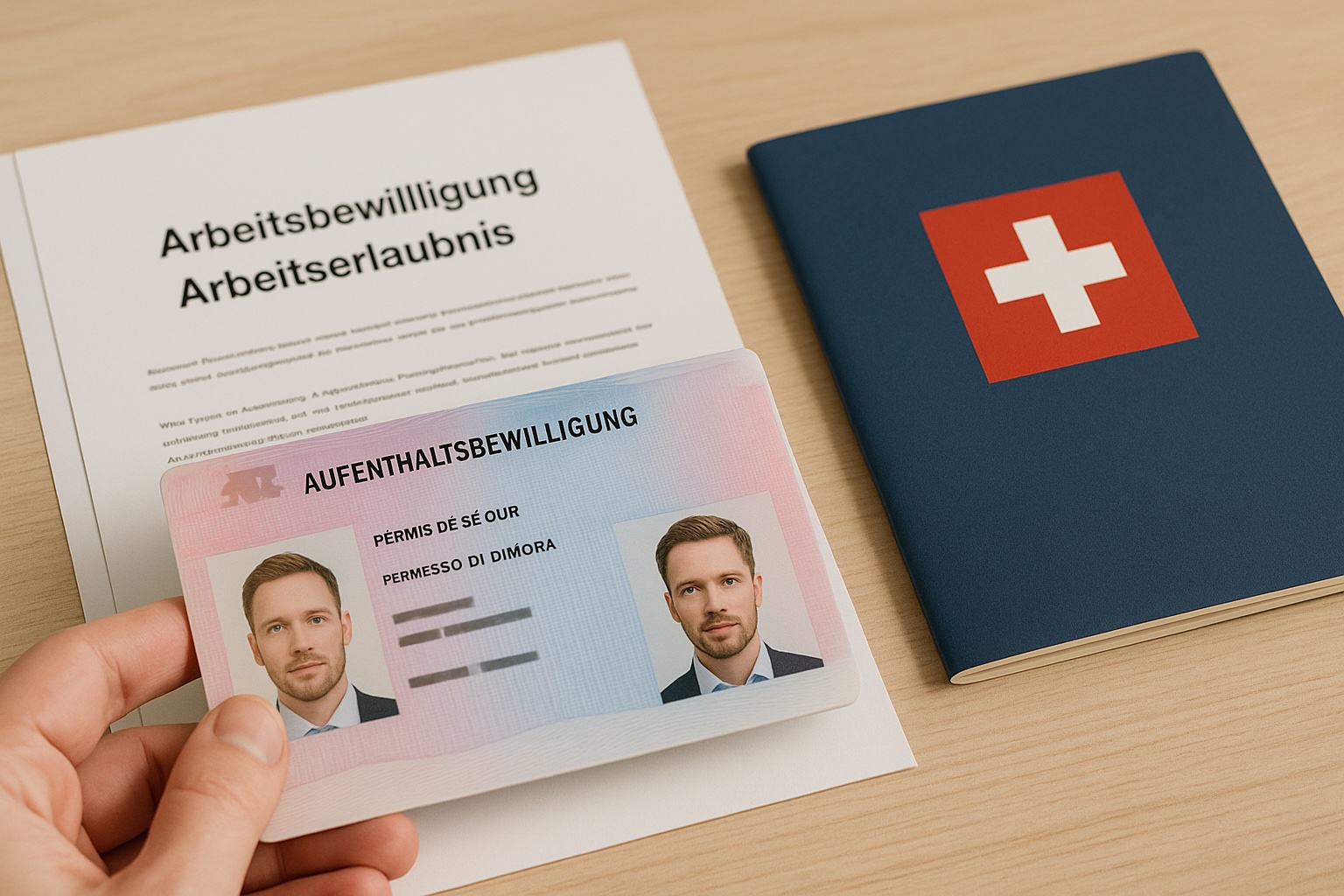Moving to Switzerland means more than packing your bags and booking a flight. To live here legally, you’ll need to meet specific immigration requirements and provide the correct documentation. Whether you’re arriving for work, study, or to join a family member, this guide covers everything you need to prepare to make your move as smooth as possible.
Choose Your Permit Type
The type of permit you need depends on your nationality and your purpose for moving to Switzerland. The Swiss government issues different residence permits, including:
Permit L – Short-term stay (up to one year), typically for temporary jobs or internships
Permit B – Long-term residence for those with a job contract longer than a year or permanent employment
Permit C – Permanent residence, usually after 5 or 10 years of legal stay
Permit G – Cross-border commuters living in another country but working in Switzerland
Permit N – For asylum seekers
Permit F – Temporary admission for those not granted asylum but allowed to remain
Most expats begin with a Permit B or L. Your employer often handles the initial application, but you’ll need to supply all necessary documentation.
Documents Required for Most Residence Permits
Once you know your permit type, you’ll need to gather the following standard documents. These apply to both EU/EFTA citizens and third-country nationals, with some variations.
1. Valid Passport
You must have a passport valid for at least six months beyond your intended stay. In some cases, a national identity card may be acceptable for EU citizens.
2. Employment Contract or Proof of Income
To apply for a Permit B or L, you’ll usually need a signed employment contract from a Swiss employer. If you’re self-employed or not working, you’ll need proof that you have sufficient financial resources to support yourself.
For freelancers and digital nomads, tax documents or bank statements may be used as financial proof.
3. Proof of Health Insurance
Health insurance is mandatory in Switzerland. You must register with a Swiss health insurance provider within 3 months of arriving. For your permit, authorities will ask for:
- Proof of coverage from a Swiss provider
- Or a private international insurance certificate accepted by the canton
Some cantons require this at the point of application, while others allow later submission.
4. Proof of Address
After entering Switzerland, you must register at your local municipal office (commune/Gemeinde) within 14 days. To do this, you need to show:
- A rental contract or housing confirmation
- In some cases, a written statement from your landlord
This step is essential for legal residency and to receive your residence permit.
5. Application Form and Passport Photos
You’ll be asked to complete a residence application form provided by the canton where you plan to live. This form typically includes:
- Personal details
- Reason for stay
- Duration of stay
- Signature and declaration
You’ll also need one or two recent passport-sized photos following Swiss biometric standards.
6. Civil Status Documents (If Applicable)
If you’re moving with family or as part of a family reunification, you may need to include:
- Marriage certificate
- Birth certificates of children
- Proof of legal guardianship (if applicable)
These must be translated into an official Swiss language (German, French, Italian) and sometimes legalized or apostilled.
Additional Documents for Non-EU Citizens
If you are from a non-EU/EFTA country, you may be subject to stricter rules and additional documents:
- Visa D: Before entering Switzerland, you may need to apply for a national long-stay visa (Visa D) through the Swiss consulate in your country
- Police Clearance Certificate: Some cantons ask for a clean criminal record
- Academic Certificates: If you’re coming for study or a qualified job, diplomas and transcripts may be needed
Always check with the Swiss embassy in your country or the migration office in your chosen canton.
Submitting Your Application
The process can vary depending on your canton of residence. Typically, you’ll need to:
- Enter Switzerland legally (with a visa if required)
- Register at your local municipal office within 14 days of arrival
- Submit your residence permit application to the cantonal migration office
It can take several weeks or even months to receive your official residence card.
During this time, you’re usually allowed to stay and begin working, especially if your employer has already submitted paperwork in advance.
Renewal and Permit Changes
Permits aren’t permanent unless you receive a Permit C. Typically:
- Permit L is valid for up to one year and may be extended once
- Permit B is valid for up to five years but is typically issued for one year initially and renewed annually
- After five or ten years, you may apply for Permit C, depending on your nationality and integration level
Always check the expiry date on your permit and apply for renewal at least 2–3 months in advance.
Tips to Speed Up the Process
- Prepare all documents before arrival, including translations and apostilles
- Use a document checklist specific to your canton (available on cantonal websites)
- Keep digital and printed copies of everything
- Work with your employer or university to ensure deadlines are met
- Be respectful and clear when visiting migration offices — a little patience and politeness go a long way
Final Thoughts
The Swiss bureaucracy may seem complex, but once you know which documents to prepare and what timeline to follow, it becomes manageable. The key is preparation, punctuality, and keeping a copy of every form and receipt.
Your permit is not just a formality — it’s the legal key to your life in Switzerland. Make sure your application is complete, accurate, and submitted on time to avoid delays or complications.
